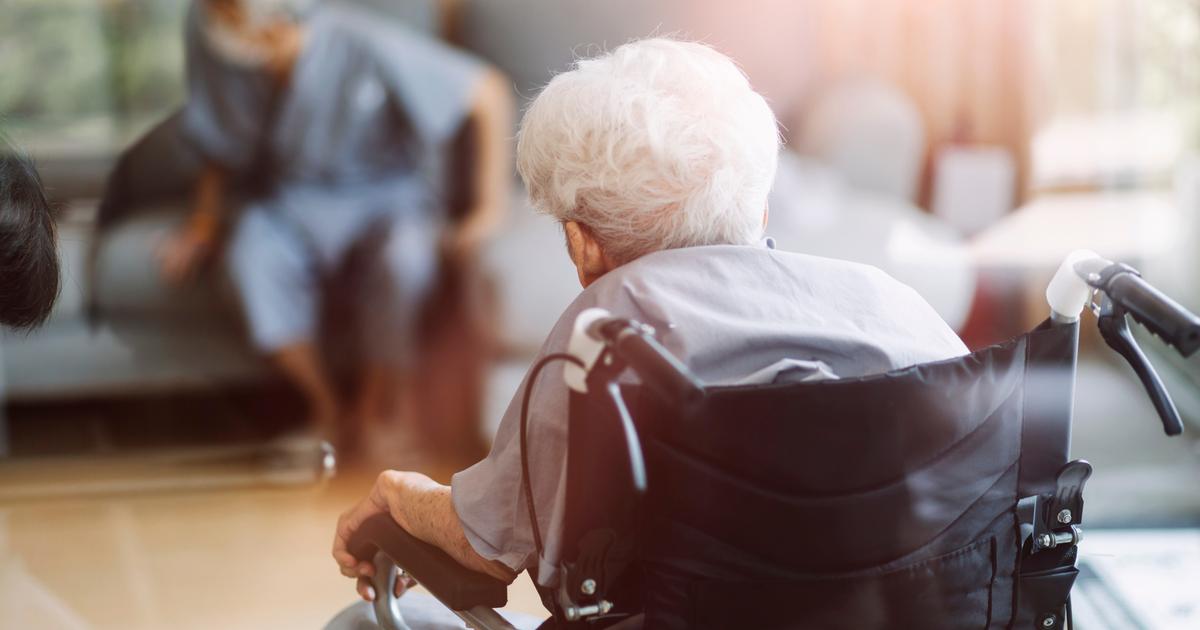Icon: enlarge
Many still need treatment after three months
Photo: istetiana / Getty Images
In Germany alone, there are more than 700,000 people who are considered to be corona recovered.
They were infected with the novel coronavirus and successfully fought it.
Thousands of new ones are added every day.
Most of those affected are fine.
However, some suffer from the consequences of the infection weeks or months after the virus has disappeared from their bodies.
The phenomenon already has a name: Long Covid.
However, little is medically known about the long-term effects of Covid-19.
Dutch doctors have now published a study in the journal "Clinical Infectious Diseases", for which they systematically evaluated data from more than a hundred sick people.
The results show that the lungs can regenerate even after the most severe disease.
But also that some mildly ill people months later still have such severe symptoms that their quality of life suffers.
The participants in the study were treated in an outpatient clinic in Nijmegen, the Netherlands, which specializes in the therapy of Long Covid.
All patients who had been discharged from the associated clinic after suffering from Covid were invited.
In addition, general practitioners were also able to refer people suffering from Covid 19 with initially mild symptoms who had not yet recovered even after six weeks.
The balance three months after the onset of the disease
In this way, the researchers collected data from 124 patients who were between 45 and 73 years old.
97 of the participants had been treated in the hospital, some of them in the intensive care unit.
In addition, however, the doctors also evaluated the data of 27 people who were initially only slightly ill and had recovered at home.
An average of three months had passed between the onset of the disease and the examinations.
The first assessment sounds positive: none of the people examined had active pneumonia.
Even in the majority of the 20 critically ill people who had spent an average of 15 days in the intensive care unit, the lungs had recovered significantly in the weeks after they were discharged from the hospital, according to X-rays.
However, the lungs only appeared completely healthy on the CT images of nine percent of hospital patients.
Even three months after the onset of the disease, 16 percent had a critical drop in blood oxygen saturation after walking around quickly for six minutes.
Many people reported persistent problems such as shortness of breath, fatigue and chest pain.
More than a third suffered from mental problems such as concentration or memory problems.
These experiences are similar to those of other patients with acute pneumonia, says study director and pulmonologist Bram van den Borst from Radboud University Medical Center, according to a statement.
Recovery after such stresses generally takes a lot of time.
"But it is encouraging to see that the lungs can recover so much after a Covid-19 disease." The doctors rated the regeneration differently in the participants who were initially only slightly ill and were referred by their general practitioners.
Puzzles about the mildly ill
Although the lungs of those affected looked almost consistently healthy on X-rays and the oxygen levels were also in the normal range, they sometimes even reported more severe symptoms than the former hospital patients.
The most common problems included shortness of breath, exhaustion and - as a result - a loss of quality of life.
In addition, around a third of this group also reported cognitive and psychological complaints.
"It seems as if there is a subgroup of patients who initially only develop mild Covid 19 symptoms, but later suffer from persistent long-term symptoms and limitations," says Bram van den Borst.
"It is remarkable that we found virtually no abnormalities in the lungs of these patients."
In contrast to the hospital patients, where everyone was invited to the outpatient clinic for a follow-up examination, this group only included extreme cases, who were referred by their general practitioners because of their persistent complaints.
Therefore, the data cannot be used to estimate how many people with initially mild symptoms are affected by the long-term effects.
So far, the results for the mildly ill are only based on the data of 27 people affected.
There is an urgent need for further research with larger patient groups, write the doctors.
"We are only at the beginning of understanding the long-term damage caused by Covid-19," says the conclusion of the study.
Previous studies: similar results
The results coincide with those of other small studies summarized by the UK's National Institute for Health Research.
An Italian study, for example, analyzed data from patients discharged from a hospital in Rome.
Even 60 days after the onset of the disease, 87 percent reported at least one problem, often difficulty breathing, exhaustion, joint pain or chest pain.
40 percent felt that their quality of life was restricted.
A British study from September concluded that around ten percent of patients with an actually mild course who were not treated in hospital still have persistent symptoms after four weeks.
It is already clear today that the medical care of Covid 19 patients will often drag on for weeks or months and put an additional strain on the health system.
In the current study, the doctors sent 37 percent of the participants for further examinations.
20 percent received medication.
For 46 percent, the doctors informed the family doctor about therapy options.
Forty percent received a referral for physical therapy or similar treatment, including mostly patients with mild symptoms.
16 percent were referred to another specialist.
Covid 19 patients sometimes have a considerable need for health and social care, which will increase as more people become ill, the researchers at the UK National Institute for Health Research also write in their study overview.
"This need will likely remain after the pandemic has subsided."
Icon: The mirror






